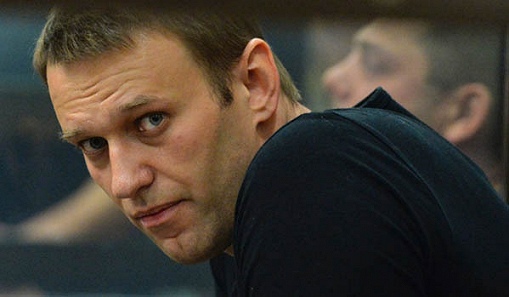
Dmitry Babich
Dmitry Babich is observer of Voice of Russia
No one was more excited about the guilty sentence to Alexei Navalny, than those Western and domestic media, which have been for many months supporting the theory of "screw-tightening" in Russia. This theory says that "tightening of screws" in Russia began with the election of president Putin last year.
This excitment of "Russia-as-new-dictatorship" theorists about Navalny's sentencing is understandable. Every believer is happy to see the signs of his faith being true. However, this theory is at variance with many facts, for example, with appointments of Gaidar-type liberals to key positions in the Central Bank and in the government, Putin’s cautious position on the situation around Snowden, which was fairly respectful to the US, continued operation and even the growth in number of anti-Putin media outlets in Russia, etc. For these doomsday theorists, ever longing for signs of ascendant totalitarianism, this verdict of a court in the provincial city of Kirov was a Godsend: popular opposition activist, just 37 years old (most probably a "young reformer") taken into custody in the courtroom! Poorly concealed satisfaction is visible in the indignant headlines of Western media: their authors are glad that everything turned out exactly as they had expected. For example, here is a heading of an article in the American edition of the Forbes magazine: «Putin declares himself dictator with the Navalny verdict». And the Polish daily "Rzeczpospolita" compared the trial of Navalny to Stalin’s show trials of the 30s. "Rzeczpospolita" never bothered to remind its readers what would have happened to people who would try meeting convicted politicians with flowers and pancakes in Stalin's times, as Navalny's supporters did after his release. (Under Stalin, people were executed for milder "offences.") For truly impartial analysts, the severe verdict of the judge in Navalny's case (5 years), was a surprise. Editor-in-chief of the English edition of the Krakov-based "New Eastern Europe" magazine, Adam Reihardt, offers a bold idea: maybe the sentence was severe just because the district court in Kirov so decided:
"I was convinced that Navalny would get a suspended sentence. It was kind of a surprise that he was given prison time. Apparently, the Russian judicial system turned out to be more independent than it is usually portrayed in Western press. And may be the prosecutor's office was simply not prepared for such a strict sentence. So, the incident can be viewed as proof that in Russia prosecution and court are actually better separated than we in the West are led to believe”.
Why was it the much demonized prosecutor's office, and not the defense that filed a petition to release Navalny from custody? At first, the supporters of the «tightening of screws» version could not explain, why the very body which they said drove the screws, came to the defense of the imprisoned young man. Then a revolutionary explanation appeared: the authorities were allegedly scared by the appearance of protesters, several dozens of which police detained in the center of Moscow and released before dawn. (Not quite the Stalinist way to do it.) No one bothered to read article 108 of the Criminal Procedure Code, which says that a person, accused of embezzlement or several other mild crimes, is not considered convicted, but only as an accused one, until the court's verdict takes full legal force. This article also says that this kind of person should not be taken into custody or, worse, placed in prison. And this is exactly Navalny's case: he was found guilty by the court, but pending appeal his verdict did not get full legal force. The prosecutor's office pointed to this fact, and Navalny was set free. Now he is back in Moscow under the written pledge not to leave the city. On Saturday, Navalny said his campaign for the position of Moscow's mayor will continue.
But questions remain. For example, what is so surprising about Navalny’s release from custody? Why was it such a disappointment to some well-oiled "protest machines" in Russia and the West? Could it be that some well-to-do gentlemen would prefer Navalny to be a jailed martyr rather than an acting "dull" candidate at a local election? We have already seen similar tides during the Pussy Riot case, when lawyers obviously preferred some loud and scandalous jailing of their clients to these clients' quiet and dull release. It seems no coincidence that during the whole trial of Navalny, almost all Western media writing about Russia and some of their Russian colleagues were in fact waging a campaign of "preemptive discreditation of any possible court verdict save a total acquittal. Any other judhement by the court was declared unjust in advance. Russian MP Andrey Klimov considers this practice a form of pressuring the court:
"When the British urge us to establish the rule of law in Russia, they should not be hypocritical. In a state with the rule of law politicians do not have the right to influence the court, including foreign politicians”.



_jpg/250px-ElbeDay1945_(NARA_ww2-121).jpg)





